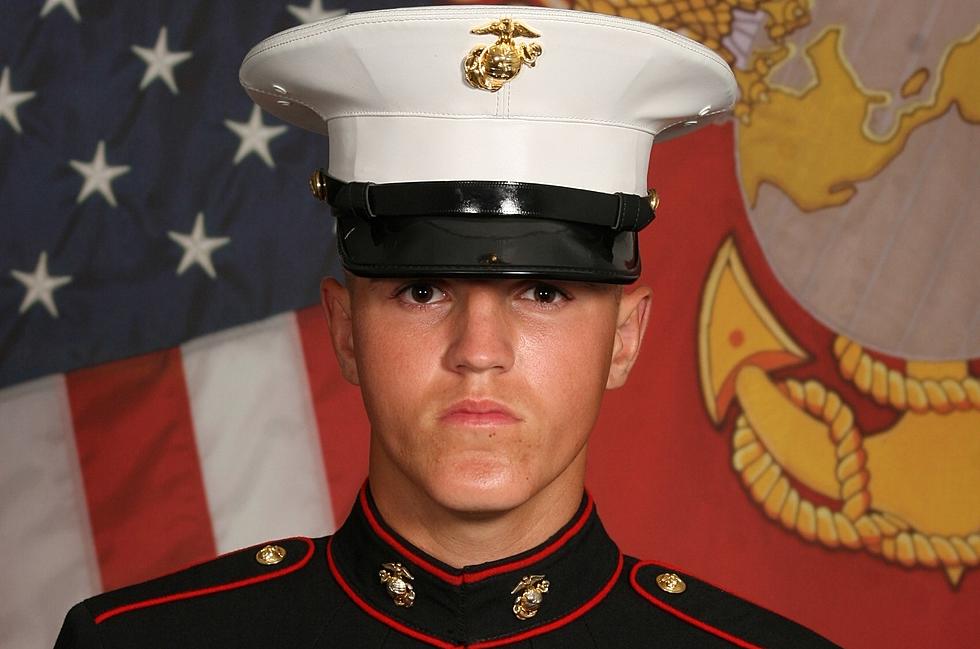WATCH: It Was Worth It- Vietnam Veteran is Finally Back Home in Wyoming
“I’m hit.”
Those were 1st Lieutenant Alva Ray Krogman’s last recorded words, his last transmission, as his 0-1 F Bird Dog was struck by 37-mm anti-aircraft fire. Krogman was serving in Vietnam at the time and he was assigned to the 504th Tactical Air Support Squadron, flying as a Forward Air Controller over Laos. His plane was shot down on January 17, 1967 and, unfortunately, his remains could not be recovered at the time.

It took more than 50 years - 50 years of questions, 50 years of doubt, 50 years of wondering. After more than 50 years, First Lieutenant Krogman was finally found, and he was finally brought back to his hometown of Worland, Wyoming.
On Monday, July 19, 2021, citizens lined the streets of Worland Wyoming to pay their respects to a fallen hero. Cityscapes were lined with American flags. People of all ages held their flags proudly; some put their hands to their hearts as a procession made its way through the town. Fellow veterans had tears in their eyes, as they saluted their fallen comrade.
First Lieutenant Alva Ray Krogman had finally come home.
Krogman grew up in Worland, according to his obituary. As a young man, he was "very active" in Boy Scouts, eventually receiving the rank of Eagle Scout. Krogman graduated from Worland High School in 1959. In school, Krogman was involved in the National Thesbian Society, Radio Club, Science and Math Club, and more. Additionally, he also lettered in football for 3 years and even received an 'All-State Honorable Mention' during his senior year.
Lt. Krogman's obituary states that his mother was quoted in an interview, saying that "Ray was very ambitious; he wanted to make the world better. He wanted to be a leader, and he put every effort into it."
Krogman proved his leadership skills after high school, joining the US Air Force Academy in Colorado Springs, Colorado.
He graduated from the Academy in 1964 and was assigned to a tactical fast response unit of the 12th Air Force. He was stationed at James Connally Air Force Base in Waco, Texas.
His obituary states that in 1966, he began flying as a Forward Air Controller. The following year, he was stationed in Vietnam.
"1st Lieutenant Krogman was assigned to the 504th Tactical Air Support Squadron, flying as a Forward Air Controller over Laos," the obituary said. "On January 17, 1967, while on temporary duty with the 23rd Tactical Air Support Squadron, he took off from Nakhon Phanom Royal Thai Air Force Base in Thailand in an 0-1F Bird Dog on a visual reconnaissance mission over Savannakhet Province, Laos. Krogman's aircraft was struck by 37mm anti-aircraft fire and crashed in the target area he was marking. His last transmission was "I'm hit." 1st Lieutenant Krogman was killed in the incident, and his remains could not be recovered at the time of his loss."
52 years later, on February 14, 2019, a Scientific Recovery Expert working at the crash site reported the recovery of possible remains. They were later confirmed to be those of Lt. Krogman.
Two years later, he was finally able to come home to his family.
Despite record high temperatures, people lined the streets to welcome the Lieutenant home. Children waved flags. Sirens blared. People applauded. It was truly a sight to behold and it was a procession fit for a hero.
That's exactly what 1st Lieutenant Krogman was - a hero. But he wasn't a hero because he died in Vietnam. He was a hero because he went to Vietnam to begin with.
Lt. Krogman was never able to come home and hug his mother, or kiss his girl. He never had the chance to watch children or grandchildren grow up. He didn't get to act on Broadway or become a famous radio deejay. But, judging from comments made by some of his fellow veterans that were on-hand, that was okay.
"He'd probably say it was all worth it," one of his peers stated, with a tear in his eye and a crack in his voice.
Maybe it was or maybe it wasn't. But hopefully the Lieutenant knew - when his plane was going down and he was faced with his own mortality, hopefully he knew that his sacrifice saved lives. His sacrifice changed lives. His sacrifice mattered and the procession on July 19 proved that. It proved that his people never forgot about him, never gave up on him, never let go of him. And now, there is peace. Now, he is home. Now, he can finally, finally rest as an entire country but, most importantly, his hometown salute him, honor him and say to him:
"Job well done, Lieutenant."
Video of the procession can be seen below, as can photos from the day's events.
Vietnam Veteran Comes Home to Wyoming
More From Y95 Country









